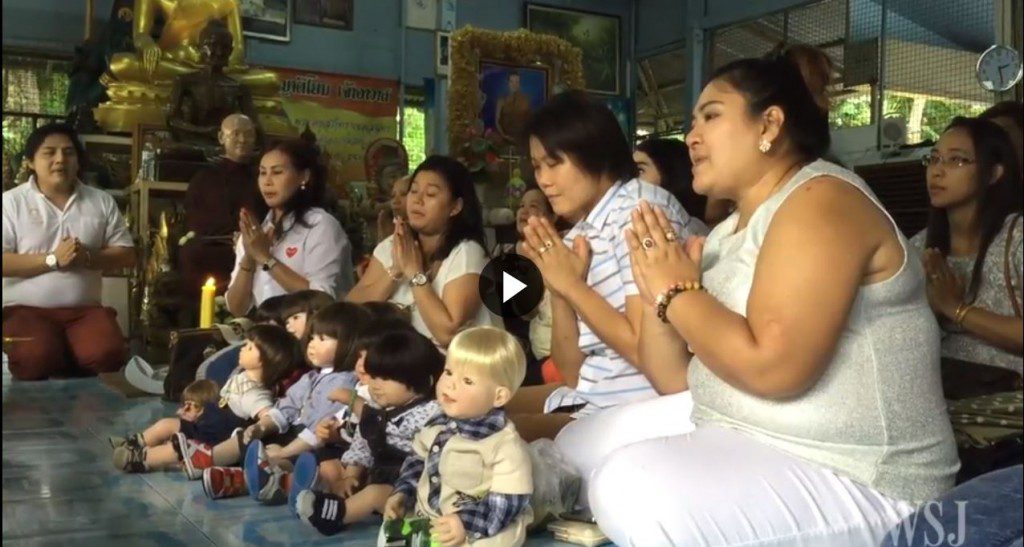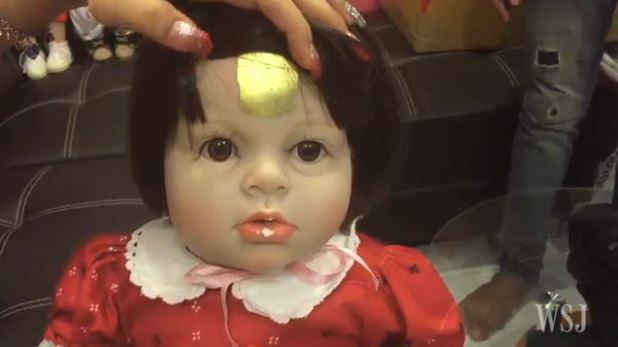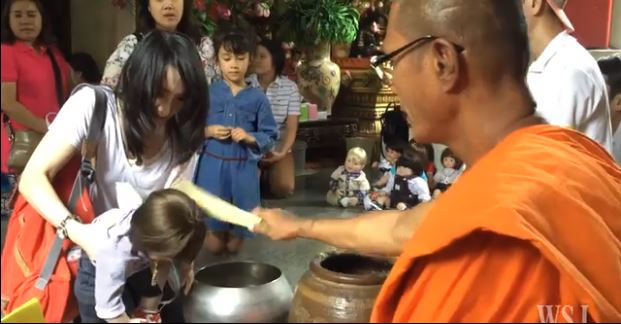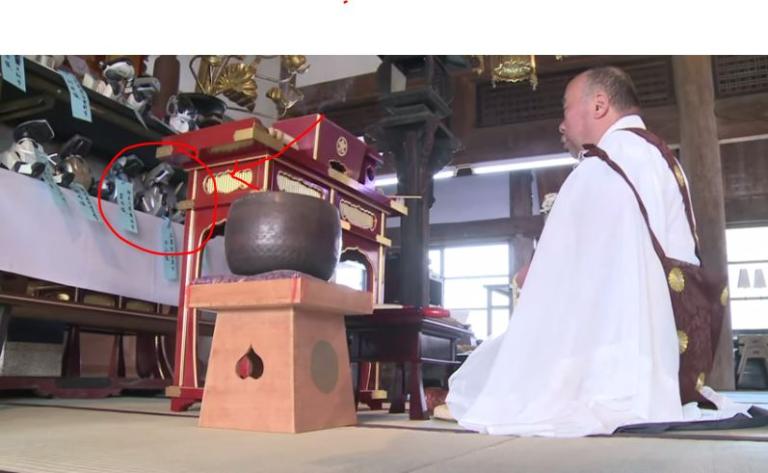“Anywhere from $44 for cheaper dolls, and up to nearly $1500 for top-of-the-line models…”
Who doesn’t like a little memento, a souvenir to carry around for good luck? Buddhists, especially but not exclusively those of Theravadin Buddhism, have long found value in amulets, “small, mystically charged objects carried [to] provide the bearer with good fortune or protection from harm.” (Encyclopedia of Buddhism) When I visited Thailand in 2012 I recall seeing amulets for sale (via donation) at many temples. One could also go to street vendors outside those temples and buy bags of these amulets, 50, 100, more, for a tiny fraction of the price. Of course the value of the object, for Buddhists, isn’t in the object itself, but its history and thus power.
As we read in Robert Buzwell’s Encyclopedia of Buddhism:
Amulets derive their power from the blessings of monks with reputations for being exceptionally holy and mystically powerful. The amulets can be seen as small objects in which the power of the sacred is crystallized, as with holy relics. Once crystallized, this power can be used by ordinary people who are not themselves holy or powerful. This power comes from both the words—Pali or Sanskrit blessings—and the personal power of the monks who chant them. The right words must be spoken by the right person for the transfer of power to be effective. (p.16)
Recently a trend that some may find strange has swept parts of Thailand, the adoption of human-like dolls as good luck charms (amulets). As the Wall Street Journal reports, owners of the dolls -or should we say “mothers and fathers”- believe that they bring good fortune, especially if they are adorned (in the way many Buddha images are) with gold leaf, as seen here:
Owners will also have the dolls blessed by Buddhist monks:
The dolls are a creation of a Thai fortuneteller named Jiraphat Natthithavaranont and a business partner. Mr. Jiraphat says the dolls, “are better suited to bringing good luck in today’s more modern business world.”
Opening a door into an often overlooked or willfully ignored aspect of traditional Theravadin Buddhist life, the WSJ interviews a local actor, who proclaims, “I’m a modern person living in a digital society, but I’m like anyone else in that I still believe in supernatural powers.”
Anecdotal proof of their efficacy pours in from owners, such as this business woman:
Retired nurse Punyawii Petkaew, for instance, paid a visit to the House of the God-Children when her handbag business was struggling. She didn’t plan to buy anything at first. She didn’t even have the money to spare for a doll. But then she saw a blond-haired one staring at her, and she knew she had to have him.
She took the doll home and named it Richie and began to ask it for help in getting her some money. A little while later, Ms. Punyawii said she won 10,000 baht, or about $280, in Thailand’s national lottery—the exact amount she paid for the doll.
“I said I didn’t want to be rich, just to have enough clients to help me get by,” she recalled.
In a nod to the country’s major religion that will no doubt make Buddhist monks happy, Mr. Jiraphat suggests, “To make a sure a doll has a real impact, one should donate food or money to monks or offer prayers at a temple.”
And a final note, never mentioned in my adventures in amulet purchasing, Mr. Jiraphat, the fortuneteller, says “If you don’t make your own luck, then the doll will just sit around in your house like any other toy.”
But Mr. Jiraphat and his partner aren’t the only one’s in the Thai doll business, as “life improvement accessories” can be bought from Mananya Boonmee, who has been creating Look Thep dolls for three years now (see video below):
Look Thep dolls, translated to “Child God,” are the updated version of the old kuman thong, the fetal fetishes containing the soul of a child traditionally worshiped, but without going to the trouble of obtaining a dead fetus. Instead, Look Thep are soul-optional: They simply invite a child’s spirit to possess a factory-manufactured doll.
Though similar in initial appearance, these dolls appear to stem from different though not necessarily disconnected historical origins, in this case blending elements of Hinduism in the form of the goddess Parvati — which is not to say that new moms and dads (owners) wouldn’t take their new Look Thep to a local Buddhist temple for a blessing.
If all of this reminds you of a recent post here, it should. Zen Buddhist priests have begun giving funerals to dying robots that have become part of the family for many people in Japan. The notion of a soul or spirit taking root in what is generally thought to be an inanimate object is not discussed much in books and courses on Buddhism, but it is both a rich and complex part of contemporary Buddhist life as well as a practice with roots deep in Buddhism’s history.
















